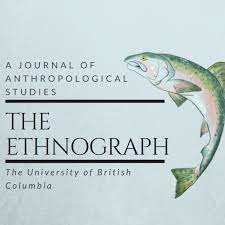Reconstituting Space: The Transformation of Non-Places through the Covid-19 Pandemic
DOI:
https://doi.org/10.14288/ejas.v7i2.198725Abstract
Using the theoretic framework of supermodernity as it applies to late-stage capitalist spaces of transience and consumerism, I examine the way the COVID-19 pandemic has shifted our physical and mental experience of shared space. Marc Augé’s (1995) text explores the concept of liminal, substance-less, isolating shared spaces in which identity and community are absent. Looking at the way our mentalities shift while reckoning with a global pandemic, I find the spaces Augé constructs are now areas of fear, apprehension, and have/embody a focus on physical monitoring. “Non-places” take the shape of supermarkets, shopping malls, airports, buses, railways, and similar locations which you move through as a nobody. The fear of transmission has permeated our day-to-day, re-constituting these places. The lines in the grocery store guiding your movements and the sanitized card readers all reaffirm your location in the pandemic world. In this paper I explore the functions of this transition with reflection on how it shifts our sense of self and anxieties operating in the world, how the self is constructed in relation to the other, and how COVID-19 shifts this worldview. Recognizing this film of anxiety over previously devoid spaces deepens a recognition of COVID-19 as impacting our way of moving in the world at a fundamental level and questions its impact on future ways of moving through these spaces.

